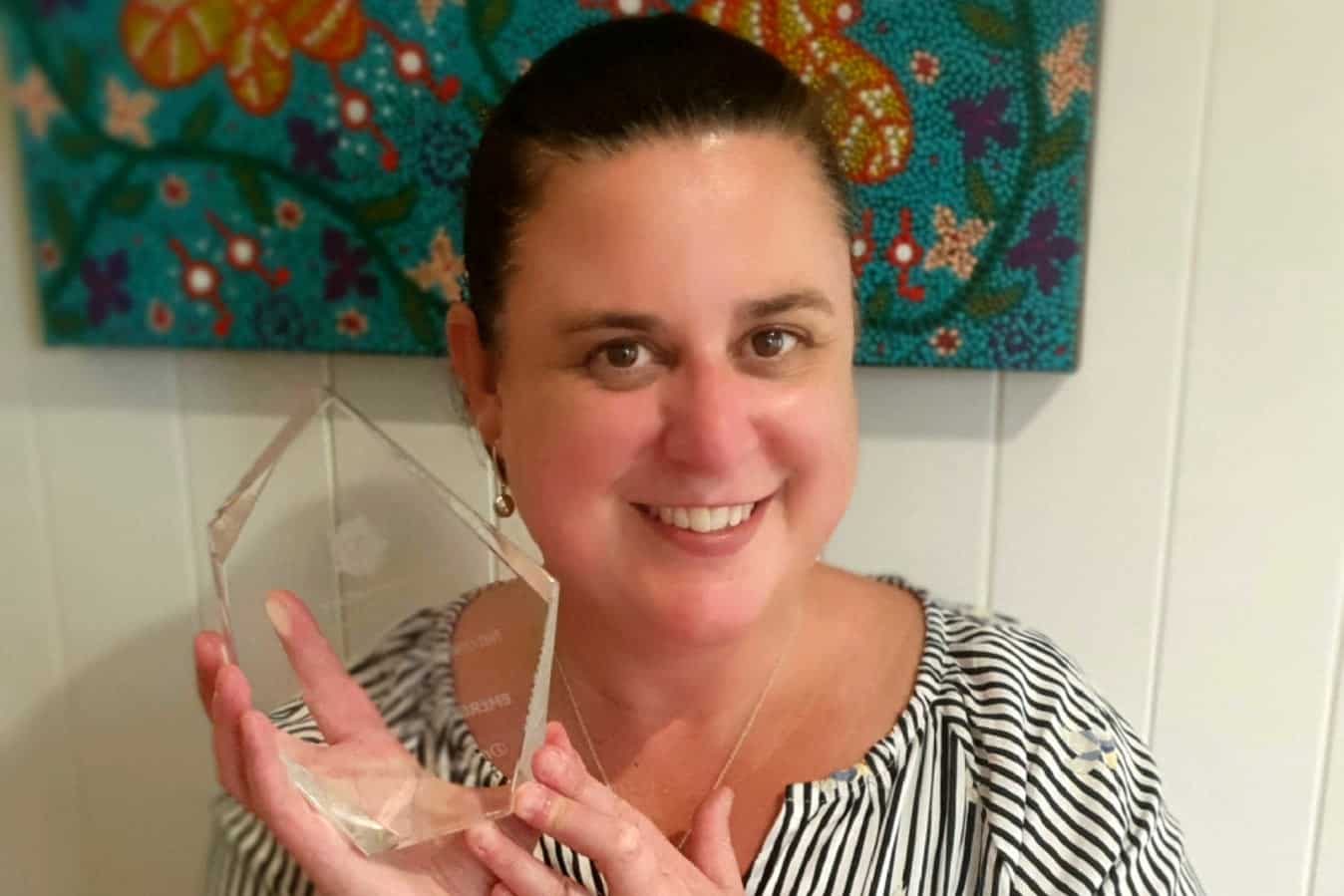After seven years of research on patient and family expectations of quality palliative care in hospital settings, the recently conferred Dr Claudia Virdun says, she is now rewarded by shaping policy and direction.
Reflecting on her PhD, Dr Virdun admits when undertaking her doctoral research with the University of Technology Sydney (UTS) she had to deal with her fair share of obstacles.
“It wasn’t linear,” she says.
Dr Virdun, worked on her studies part-time for three years alongside her responsibilities as her child’s primary carer, “accelerating” her research once her daughter commenced pre-school.
With her PhD now complete, Dr Virdun has been recognised for her significant work in the area of palliative care. Earlier this year, Dr Virdun was awarded the Individual Emerging Researcher Award at the 2021 National Palliative Care Awards for her “outstanding service and commitment to the palliative care community through innovative and important research.”
More significantly for Dr Virdun, who is currently working as both a Senior Research Fellow with the Queensland University of Technology (QUT) and as the Secretary of Palliative Care Nursing Australia, her research work puts her in a position where she can shape policy and care settings for clinicians and patients.
“[I] saw fairly similar problems in different settings, “Dr Virdun, who worked clinically for more than 10 years in locations such as London, Sydney and rural NSW, says.
“It really did get me to think about how can we understand making improvement, and then from making that improvement, being able to enable that to occur everywhere, so there’s that ability to enable quality care wherever a patient might need that care, and with whomever they’re connecting with.”
After participating in several quality improvement projects, at local, jurisdictional and international levels, Dr Virdun was drawn to research after seeing how those projects were influenced by factors external to clinical settings.
That realisation, alongside a conversation with one of her early mentors, Professor Joanne Gray, led to a more significant conclusion: That long-term intensive research was one of the most ideal mechanisms to lay the groundwork for long-term outcomes that the quality improvement projects could only hint at.
“[They said] the quality improvement projects, in a sort-of episodic way that was short term, funded for a specific reason were great, but taking it forward to actually start to develop some really robust information, that can inform change at a larger scale, would be something to consider,” Dr Virdun says.
“In order to do that, I’d need to start to learn about that and really become a novice researcher, and they encouraged me to do a PhD, which I then enrolled in.“
Dr Virdun’s thesis, informed initially by her professional experience, looks at how palliative care can be optimised for people in acute hospital settings and aims to understand why current levels of care vary in quality across locations and how to address that over an extended period.
Titled “Optimising care for People with palliative care needs, and their families, in the Australian hospitaL setting: the OPAL Project,” Dr Virdun says that like many PhD projects, its final findings were necessarily more modest than its ambitions, to ensure the project remained manageable.
Nevertheless, as a nurse researcher who believes strongly in the capacity of nurses taking leadership roles in clinical, research and policy settings, she says two of her key learnings could fuel further research and influence multiple areas of practice.
The first finding comes from the integration of information from patients and families across the globe with that from 50 Australian subjects: This integrated dataset reflects perspectives of more than 1200 patients and 3800 family members to help identify gaps and understand what is important for quality inpatient palliative care provision.
“We know now what people think is required for effective and good care in the hospital setting in Australia, and then the next step is, well how can we really start to enable that?”
Dr Virdun’s PhD begins untangling that question, investigating how these markers of care are enacted in overseas contexts. This sets up the second key learning, which is the identification, by Australian health stakeholders, of possible elements and frameworks that could facilitate the care that patients and their families expect.
Going forward, Dr Virdun hopes to use these two key findings as fuel to start testing within clinical and workplace settings to assess the most practical way hospitals can meet patient and family expectations.
It is a next step that will, in many ways, bring her full circle to some of the clinical, hospital system and policy questions that she asked when first taking part in quality improvement projects as a palliative care clinician.
“What we need to now do is actually start to test some ideas in busy, messy wards and give it a go, and start to see, ‘actually when we did that, it did seem to help, but when we did that, it took an extra three hours of the nurse’s time, it didn’t make much impact, and we actually shouldn’t invest in that idea,” Dr Virdun says.
“That’s the sort of work I’m grappling with now.”








